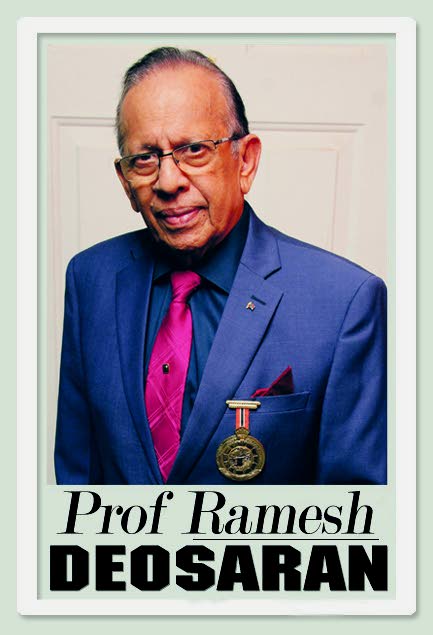It’s psychological warfare

As the political campaign for local government closes towards August 14, tell me, which issue or mixed issues are likely to pull voters from or towards one party or another? Is it crime and home invasions, food prices, broken roads and infrastructure, dented procurement legislation, corruption, race, traffic, or just which leader you like? Changing the voter’s mind is the challenge now, isn’t it?
How many from the 34 per cent who voted in 2019 will swing across? Moreso, given the slippery seven-seven municipal corporation tie, how many will the PNM or UNC-NTA pull from the 64 per cent who didn’t vote? What are the political effects of PDP, PEP and MSJ?
The political campaign seems much of a war of words, psychological warfare. When PM Dr Keith Rowley says something, UNC Opposition Leader, Ms Kamla Persad-Bissessar says something else, usually the opposite. When she says something, he says something else, with touches of criticism. When Tobago House of Assembly (THA) Chief Secretary Farley Augustine says Dr Rowley wrong, Dr Rowley says no, is Farley wrong. Who is right?
When well-groomed UNC MP Saddam Hosein says the crime situation is bad, getting worse, the well-tailored National Security Minister Fitzgerald Hinds says, not so at all, it could be worse. When the robust-speaking MP Rudy Indarsingh shows the media how badly damaged the roads are, Works and Transport Minister Rohan Sinanan says he knows and Indarsingh also knows the roads will be fixed. When Dr Rowley boasted that “Trinidad is not a torn nation or failed state, but a real place,” well, who tell him to say so. Mass media got filled with rebukes and unfriendly sarcasm.
When Dr Rowley apologised for the bad state of roads, many jump and say “too late for apologies.” And with this psychological warfare, we don’t have a calypsonian to comment with eloquent lyrics like “snake in the balisier,” or “not a damn seat for dem,” or “De doctah say pay your tax, pay as you earn” or even “The price of progress.” No wonder letter-writer Rex Chookolingo used the space to say the nation is filled with “wannabes, hangers-on, braggarts, bullies, opportunists and beggars.”
(Newsday, August 1)
When Finance Minister Colm says the economy is looking good, even with a surplus, UNC MP Dave Tancoo replies not so, according to the Moody's report. Imbert says Moody's is wrong. And so on and on. There are many, many more such “war of words” examples, sometimes necessary, but also leaving the population without really knowing the truth and unable to distinguish between political rhetoric and fact.
This rapid exchange of light-level words and political opinions remain largely psychological because they essentially depend on the existing state of the population's mind. People will believe what they already believed, that is, the political exchanges will be mentally screened, and largely accepted or rejected according to their existing prejudices and stereotypes. Even when reliable data is presented, that too, often gets shunned for the mental discomfort it may cause. Changing minds is not easy, especially for campaigning politicians. Consensus, worse yet unity, on public policy is hard to get but not impossible with party politics.
In fact, the divisions are functional. They are encouraged, even supported, for political sustenance, sometimes described as a “lively democracy." Some even ask “unite for what purpose and in whose interest?”
Now unity doesn’t mean everybody. That’s impossible, except for things like running from a fire. A very large majority will do, even though it could resemble a dictatorship under one leader. So maybe it’s better to have legitimate differences in beliefs, opinions and organisations. People see it as part of their rights and freedoms. But there are essentials. All, except criminals, stand for fighting crime. However they remain divided on who is doing it and how.
Psychological warfare has always been a firecracker part of political campaigns. A striking example surrounds Persad-Bissessar’s “stand your ground laws” against violent house invaders. Such self-defence rights include violence and armed responses. The government and police disagreed, citing “enough laws” available for self-defence. However, Ms Persad-Bissessar last Thursday declared: “No apology, we are against the murderers, the home invaders. If they purple, green, brown, black white – light them up if they coming to hurt you.” It looks like more than psychological warfare.

Comments
"It’s psychological warfare"